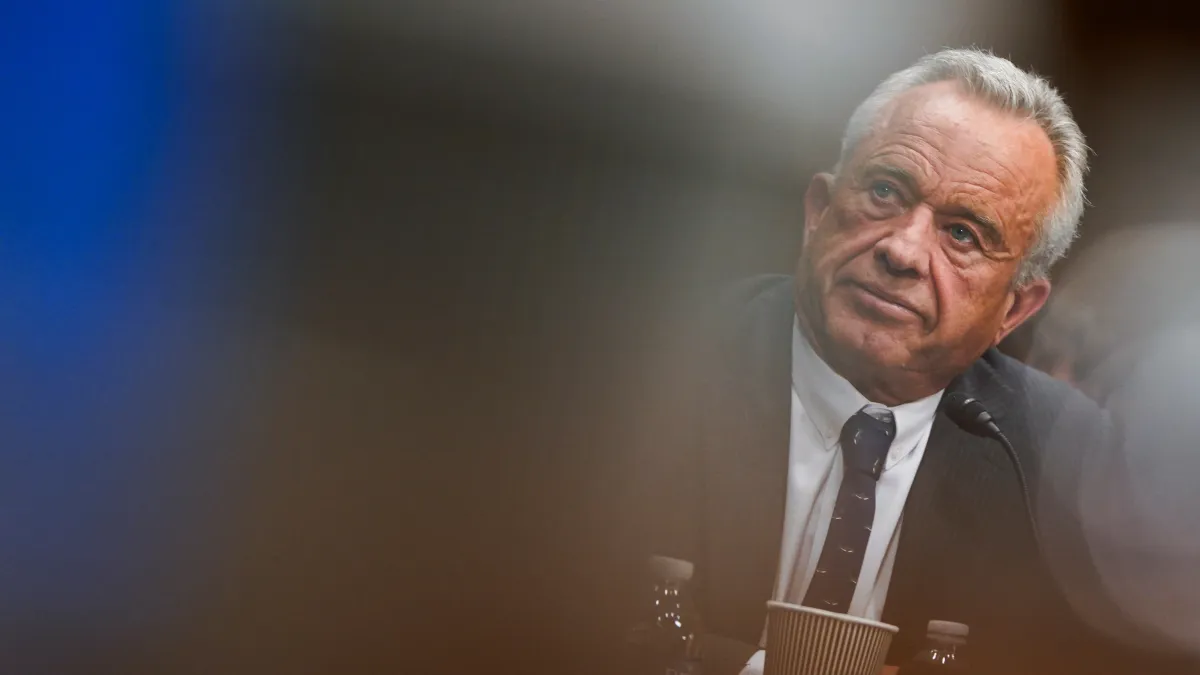
Testifying before Congress Wednesday about President Donald Trump's 2026 budget request, Health and Human Services Secretary Robert F. Kennedy Jr. defended the mass firings occurring at the health agencies he oversees, as well as his controversial views about the measles vaccine.
Kennedy has long been known for his vaccine skepticism and association with others who question the safety of vaccines. Members of the House Appropriations Committee health subcommittee asked him about what some have seen as his weak support for the measles vaccine during an outbreak of the disease in the U.S. - an outbreak that has killed three people and sickened more than 1,000, many of whom are unvaccinated.
Rep. Rosa DeLauro of Connecticut, the top Democrat on the Appropriations Committee, accused Kennedy of "peddl[ing] unfounded and dangerous vaccine skepticism" and "spread[ing] lies and misinformation about people living with autism."
"You're the secretary of HHS. You have tremendous power over health policy," DeLauro said. "Really horrifying that you will not encourage families to vaccinate their children, measles, chickenpox, polio. Vaccines are one of the foundations of public health. Vaccines, yes, save lives, and the fact that the secretary of Health and Human Services refuses to encourage children to be vaccinated is a tragedy."
Asked by Democratic Rep. Mark Pocan if he would give his own children the measles vaccine, Kennedy provided a less than full-throated endorsement. "Measles? Probably for measles, what I would say is my opinions about vaccines are irrelevant," he said. "I don't think people should be taking advice, medical advice, from me."
Later in the day, Kennedy appeared before the Senate Committee on Health, Education, Labor and Pensions, and was asked again about the measles vaccine. "I'm not going to just tell people everything is safe and effective if I know that there's issues," he said, without providing any details.
Big budget cuts: The White House budget proposal calls for major cuts at some of the leading federal health agencies, including an $18 billion cut at the National Institutes of Health and a $3.6 billion cut at the Centers for Disease Control and Prevention.
Critics have accused Kennedy and the Trump administration of trying to gut the country's public health infrastructure, but the HHS secretary defended the cuts as a way to improve efficiency and save money.
"Our reductions have focused on aligning HHS staffing levels to reflect the size of HHS prior to the COVID-19 pandemic, which saw around a 15% increase in the number of employees," Kennedy told the House subcommittee.
Kennedy denied that the cuts were driven by billionaire Elon Musk and his DOGE initiative to drastically reduce the size of the federal government. "Elon Musk gave us help in trying and figuring out where there was fraud and abuse in the department," Kennedy said. "But it was up to me to make the decision, and there are many instances where I pushed back."
Sen. Bill Cassidy, a medical doctor who chairs the Committee on Health, Education, Labor and Pensions and who played a key role in getting Kennedy confirmed despite concerns about his stance on vaccines, called on the secretary to clearly tell the American people about his plan for the nation's health agencies.
"Much of the conversation around HHS's agenda has been set by anonymous sources in the media and individuals with a bias against the president," Cassidy said. "Americans need direct reassurance from the administration, from you, Mr. Secretary, that its reforms will make their lives easier, not harder."
Some audience members at the Senate committee hearing protested Kennedy's history of vaccine skepticism. "When Bobby lies, children die," one sign said, while another read, "anti-vax, anti-science, anti-America." At one point, protestors yelling "RFK kills people with AIDS" interrupted Kennedy's testimony and were removed from the hearing by police officers.